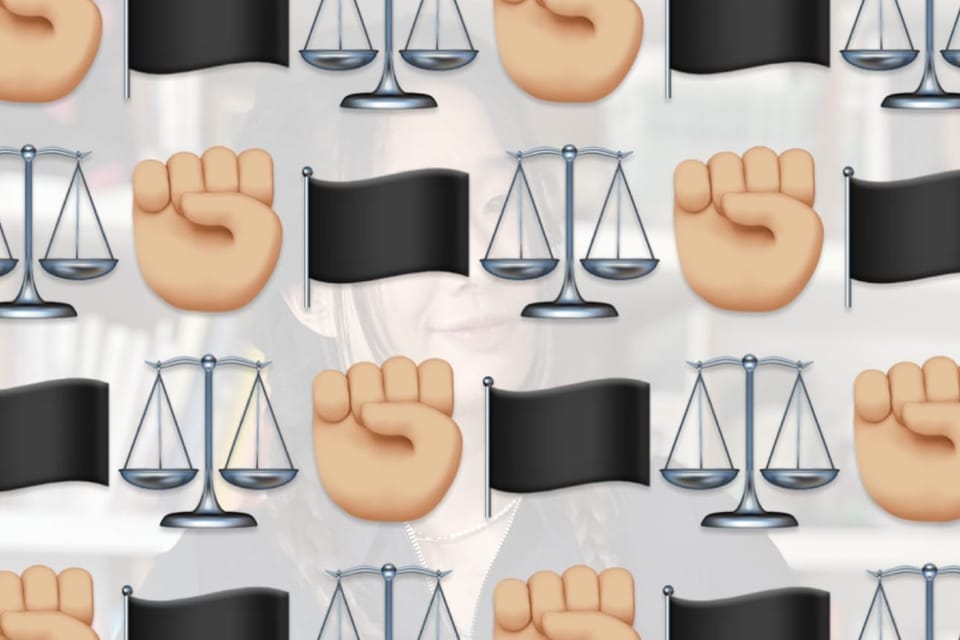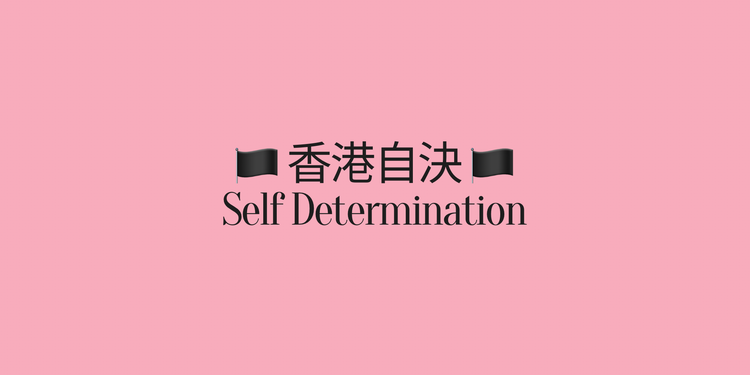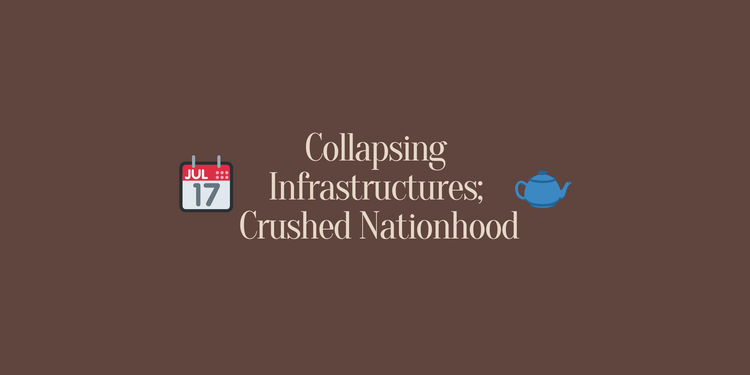📹 Han Supremacy is a Han Problem: Cross Community Solidarity

A few months ago, I solicited suggestions for topics to unpack. Someone asked about how I understand cross-community solidarity.
This is a topic I think about often, practicing reflexivity on my positionality as a Han dissident – especially after observing the prevalence of Han Supremacy within the China human rights sector. There is a strange power dynamic – Han dissidents are experiencing political suppression, but are also benefiting from the Chinese party-state’s perpetuation of Han racial supremacy.
Ultimately, being a dissident does not automatically absolve Han folks from responsibility as beneficiaries of Han supremacy.
In the west, we have (mostly) normalized discussion about white supremacy, but seldom do we discuss racialization beyond the western context. Han supremacy is a racial power dynamic perpetrated both by the East and the West.
The Chinese party-state apparatus enacts settler colonialism and genocide in East Turkestan and Tibet. The Chinese authorities’ ethnonationalism perpetuates racist stereotypes that Uyghurs and Tibetans are uncivilized without intervention from the "civilized" Chinese authorities. Instead, Beijing prescribes their patriotic version of “Chinese” culture and language onto the Indigenous communities they colonized.
to be VERY clear: Beijing’s ethnonationalism is not the one-true Han Chinese culture. No such thing exists. There are diverse languages, cultural practices, and regional identities within the broad Han category.
In the name of Han security, the Chinese government enacted strategic policies to assert physical control of racialized bodies such as mass surveillance and detention, mobility control, and mass forced labour transfer. The ongoing genocide aims to erase non-Han culture within the PRC - through forced assimilation schools (similar to Canadian residential schools), forced interracial marriage and family restructuring, criminalization of religion.
Sinicization 漢化 hanhua: Sinicization is colonial and racialized violence against non-Han communities, including but not limited to assimilation, colonization, and erasure. Sinicization is grounded on the belief that Han peoples were civilized compared to non-Han, to erase ethnic and religious differences that are deemed inferior. After the establishment of the PRC, the Chinese party-state implemented Sinicization programs, most notably in Tibet, East Turkestan, and Mongolia. (Cherie Wong 2024)
Even in the West, where the systemic and institutionalized oppression against Tibetans and Uyghurs are recognized by the general public, Beijing’s colonial narrative is still embedded in the mainstream discourse:
Not only are Tibetans and Uyghurs often forcibly generalized as “Chinese”, they are also referred as “ethnic minorities” of their land. The assumption that these communities should be fluent in Mandarin and simplified Chinese - their colonizers' language. Even the names of their homeland are sanitized under colonial terms like “Xinjiang” or “Xizang".
Xinjiang is the Mandarin word for “a new frontier”.
Tibet was renamed in Mandarin pinyin, Xizang.
Indigenous Uyghur and Tibetan communities existed for centuries before the PRC ever existed - this history cannot be erased. It is under these geopolitical, social and racial dynamics that I reflect from my positionality as a Han person.
Race is an unavoidable part of the cross-community dynamic with Uyghur and Tibetan communities.
Han solidarity can be as surface level as “we share a common oppressor in that eastern geopolitical region”. For most of activists, we do show up for each other - going to protests, donate, repost, volunteer and collaborate in joint actions. But if it stops there, this so-called solidarity remains to be superficial.
This is and will always be about Uyghurs, Tibetans, and Indigenous peoples seeking self-governance and land back.
Since the Chinese authorities rationalize oppressive colonial violence through Han supremacist rhetorics, Han individuals must step up to leverage their privilege to dismantle Han supremacy.
In any scenario - a future of self-determination - Hongkongers, Uyghurs, Tibetans, Chinese and Taiwanese liberation - are interconnected. The anti‑CCP movement should also welcome Indigenous communities in Taiwan, those around the South China Sea, and migrants from Global South nations. The PRC’s debt trap diplomacy like Belt & Road Initiative is exploiting communities in the Global South. Labour rights abuse, environmental damage, sovereignty transfers - this is modern economic colonialism.
Solidarity must extend to grassroots and Indigenous communities marginalized by the Chinese party-state’s growing authoritarianism.
📝 Reading List 📝
💛 Cherie Wong (2024). “Capturing the Realities of Diaspora & Dissident Communities Experiencing Transnational Suppression from the Chinese Party-State Apparatus”. https://konggirlsocialist.ghost.io/portfolio/
Recommended Sub-Chapters:
- Chapter 1.1.2 - The Greater China Region
- Chapter 4.1.2 - Racialized by Han Supremacy: Uyghurs and Tibetans
- Chapter 4.2.3.2 - Cross-Communities Solidarity
- Chapter 4.3.2.2 - Western-Centrism: Seeing the World Thru Settler-Colonialism
💭 Sinicization & Settler Colonialism
Susan McCarthy (2024). "Sinicizing China’s World Muslim City: Spatial Politics, National Narratives, and Ethnoreligious Assimilation in the PRC." Comparative Studies in Society and History. https://www.cambridge.org/core/journals/comparative-studies-in-society-and-history/article/sinicizing-chinas-world-muslim-city-spatial-politics-national-narratives-and-ethnoreligious-assimilation-in-the-prc/01111AFDD7513C21EBC56A9572793833
Dhananjay Sahai (2020). "CCP and Sinicization of Tibet." Tibet Policy Institute. https://tibetpolicy.net/ccp-and-sinicization-of-tibet/
Andréa Worden, Nuzigum Setiwaldi, Elise Anderson, Henryk Szadziewski, Louisa Greve, & Ben Carrdus (2022). "Forced Marriage of Uyghur Women." Uyghur Human Rights Project. https://uhrp.org/report/forced-marriage-of-uyghur-women/
United Nations (2023). "China: UN Experts Alarmed by Religious Crackdown in Xinjiang." UN News. https://news.un.org/en/story/2023/02/1133212
Human Rights Watch (2024). "China: Religious Regulations Tighten for Uyghurs." Human Rights Watch. https://www.hrw.org/news/2024/01/31/china-religious-regulations-tighten-uyghurs
Amy Gunia (2023). "China Has Separated 1 Million Tibetan Children From Their Families." TIME. https://time.com/6253481/china-tibet-million-children-separated-residential-schools/
World Uyghur Congress (2023). "Why Xinjiang Is an Internal Settler Colony." World Uyghur Congress. https://www.uyghurcongress.org/en/why-xinjiang-is-an-internal-settler-colony/
Vicky Xiuzhong Xu, Danielle Cave, James Leibold, Kelsey Munro & Nathan Ruser (2020). "Uyghurs for Sale." Australian Strategic Policy Institute (ASPI). https://www.aspi.org.au/report/uyghurs-sale/
💭 Economic Colonialism & Military Expansion
Asia Maritime Transparency Initiative (2023). "Chinese Power Projection." Center for Strategic & International Studies. https://amti.csis.org/chinese-power-projection/
Ivan Watson, Brad Lendon, & Ben Westcott (2018). “The Battle for the South China Sea: Power Struggle in the Pacific." CNN Interactive. https://www.cnn.com/interactive/2018/08/asia/south-china-sea/
Associated Press (2022). "China Has Fully Militarized Three Islands in South China Sea, US Admiral Says." The Guardian. https://www.theguardian.com/world/2022/mar/21/china-has-fully-militarized-three-islands-in-south-china-sea-us-admiral-says
💭 Belt & Road Initiative (BRI)
China Labor Watch (2022). "Trapped: The Belt and Road Initiative and Its Chinese Workers." China Labor Watch. https://chinalaborwatch.org/trapped-the-belt-and-road-initiative-and-its-chinese-workers/
Fernando Ascensão, Lenore Fahrig, Anthony Clevenger, Richard Corlett, Jochen Jaeger, William Laurance & Henrique Pereira (2018). "Environmental Challenges for the Belt and Road Initiative." Nature Sustainability. https://www.researchgate.net/publication/325155394_Environmental_challenges_for_the_Belt_and_Road_Initiative
💭 Debt Trap Diplomacy
Hanna Sunny & Karamala Areesh Kumar (2024). "China’s Debt Trap in Africa: A Comprehensive Analysis." The Geopolitics. https://thegeopolitics.com/chinas-debt-trap-in-africa-a-comprehensive-analysis/



Comments ()